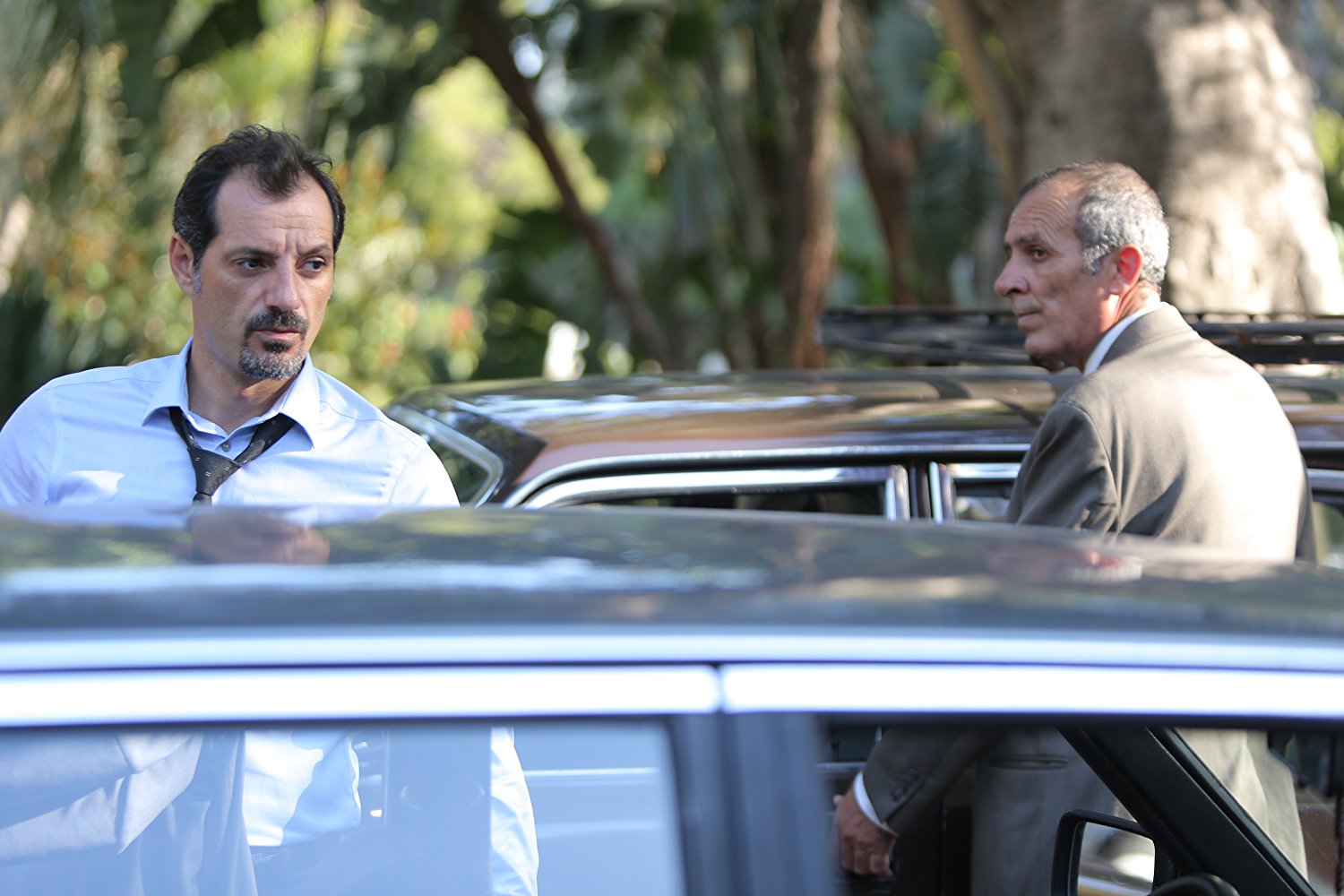The Lebanese Civil War ended almost 30 years ago, but Ziad Doueiri still feels the psychological effects.
The Beirut native knows that his latest film, the Oscar-nominated The Insult, might be distressing for those who remember the deadly conflict, and have experienced firsthand the political and religious volatility that continues to plague the small Middle Eastern nation.
“The status quo did not change. Things have not gotten resolved,” Doueiri said by phone from New York. “There are still Palestinian refugees. There are still Syrian refugees. There is still tension between religious communities, and there has not been a real in-depth dialogue between everyone to turn the page.”
The film begins with an argument in working-class Beirut between a Christian auto mechanic (Adel Karam) and a Palestinian construction foreman (Kamel El Basha) that turns heated and stubbornly winds up in court, where the conflict is escalated by opportunistic lawyers into a national referendum on religion, refugees, and civil rights.
Doueiri, 54, who grew up in a family of lawyers and judges, said he aimed to bring real-life credibility to that fictional scenario, in an effort to capture some authentic feelings beneath the surface.
“I was fascinated by something that is very simple that spirals out of control. I’ve witnessed stuff like this,” Doueiri said. “I’ve always wanted to do a courtroom drama. You can put the protagonist and antagonist in the same room and have them go at each other. It’s always explosive. It works for the film since there’s a legal case to be discussed — can you say whatever you want? Is it punishable by law to insult somebody’s religion or culture?”
The controversial filmmaker grew up in West Beirut as the son of left-leaning parents who championed Palestinian causes. As a teenager, Doueiri left his war-torn homeland for the United States, where he worked and studied for 18 years, mostly in California and New York. He gained steady employment in the film industry, most notably as a cameraman on Quentin Tarantino films including Pulp Fiction.
His ex-wife, Joelle Touma, remains his writing partner. She was born and raised in the birthplace of Lebanon’s right-wing Christian political party, which historically is opposed to the influx of Muslims.
While conceiving The Insult, the pair swapped roles. She wrote the sequences defending the Palestinian perspective, and he wrote the dialogue for the Christian lawyer and his client.
“I questioned the way I was raised,” said Doueiri, who now lives in Paris. “I was very hostile toward right-wing Christians, and today I have a different perspective.”
As a result, Doueiri has been condemned by a left-wing group who has mounted a campaign to boycott the film, claiming he’s denigrating the Palestinians.
However, the filmmaker has been a lightning rod for criticism since completing his previous film, The Attack (2012), a provocative and politically charged suicide-bombing drama that was shot in Israel, using Israeli actors.
That film was banned by governments in Lebanon and several other Arab countries. Yet Lebanese officials backed The Insult, which turned into a box-office hit there and subsequently became the country’s first Oscar nominee for Best Foreign Language Film.
The project marked Doueiri’s first time filming in his native country in two decades. The screenplay was written in English and translated to Arabic, which was his preference. He also closely supervised the subtitles.
“We didn’t want to make a movie just for the Lebanese audience. It was important for the film to be understood in any culture,” he said. “Human conflict and dignity and the quest for justice is universal.”
Although he’s been accused of re-opening old wounds, Doueiri didn’t set out to make a film that would be cynical or depressing.
“I don’t do films to upset people on purpose. I did it because I had a strong story to tell,” he said. “It’s an optimistic film. I wanted to have this sense of reconciliation. The Middle East is always marred with bad news. I wanted to give a spark of hope at the end.”





